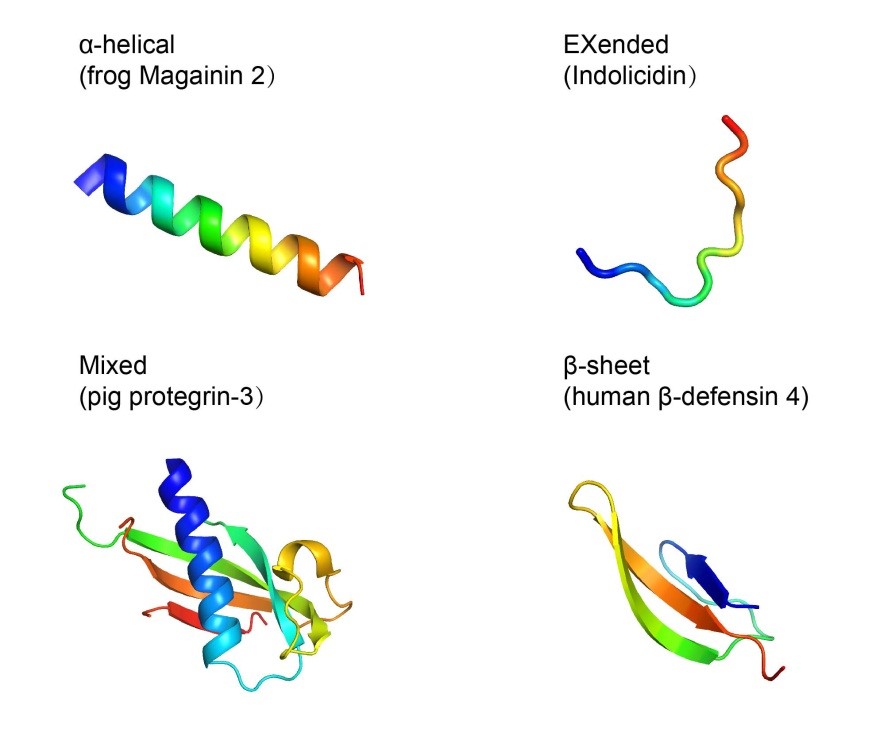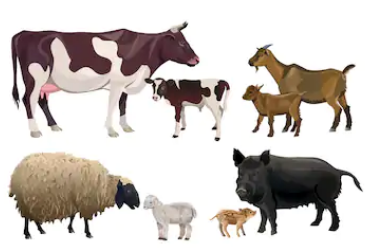Antibiotics are widely used for disease prevention and growth promotion in conventional livestock and poultry production. Concurrent with the success of antibiotics for treating infections, the emergence and rapid dissemination of antibiotic-resistant bacteria poses substantial risks for animal and human health. Now, antibiotic resistance has become an increasingly serious problem. The global human deaths are predicted to reach 10 million by 2050 due to antibiotic resistant infections, which are more than the current death toll associated with different forms of cancer. For this reason, there is an urgent need to develop novel antimicrobial agents, such as alterative drugs based on antimicrobial peptides (AMPs).
AMPs are produced by a variety of organisms and are responsible for protecting the host against the pathogens, as a component of innate immunity. AMPs are generally between 12 and 50 amino acids with a broad spectrum of antibiotic activities against bacteria, yeasts, fungi, and viruses, as well as cytotoxic activity on cancer cells, anti-inflammatory, and immunomodulatory activities. For now, based on their secondary structure, AMPs fit into four major classes (Figure 1). Cell membrane permeabilization by AMPs was thought to be the primary mechanism of killing pathogenic microbes or cancer cells.
 Figure 1 The three-dimensional structures of four major classes of antimicrobial peptides
Figure 1 The three-dimensional structures of four major classes of antimicrobial peptides
In recent years, studies on AMPs and their applications have become one of the hot spots in different fields, especially in agricultural science. AMPs are considered as one of the most promising alternatives to conventional antibiotics, and have a strong potential for application as feed additives in swine, poultry and even fish production. Some studies show AMPs as feed additives have remarkable effects compared with the traditional antibiotics, including:

In addition, AMPs not only represent alternatives to antibiotics as antimicrobial growth promoters (AGP) but are also as excellent therapeutic agents for animal disease prevention, control, and treatments through directly adding to animal feed as anti-infective additives to protect animals.
Being a team with excellent experience in feed science and animal nutrition, Lifeasible provides a series of AMPs' services against feed additives to satisfy agricultural developer requirements for green health and safety animal feed additives, including:
Please do not hesitate to contact us for more details of AMPs’ services related to feed additives. Our expert representatives are available 24 hours a day, to help design an optimal solution for your project.
Lifeasible has established a one-stop service platform for plants. In addition to obtaining customized solutions for plant genetic engineering, customers can also conduct follow-up analysis and research on plants through our analysis platform. The analytical services we provide include but are not limited to the following:
July 13, 2024